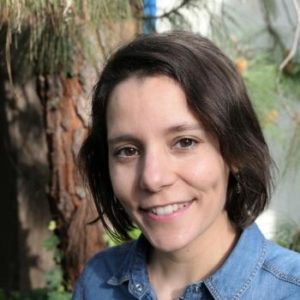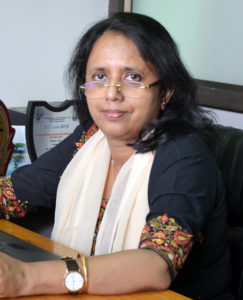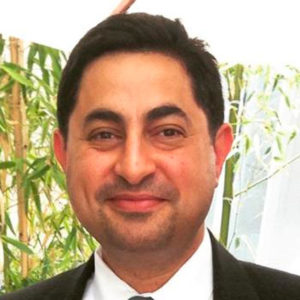
MIPS Seminar
2:00-2:45 PM | Prof. Pawel Moskal
“Positronium Imaging with the J-PET Scanner”
Head of the Department of Experimental Particle Physics and Applications
Marian Smoluchowski Institute of Physics
Jagiellonian University, 30-348 Krakow, Poland
2:45-3:30 PM | Prof. Ewa Stepien
“Preclinical studies of positronium and extracellular vesicles biomarkers”
Head of the Department of Medical Physics
Marian Smoluchowski Institute of Physics
Jagiellonian University, 30-348 Krakow, Poland
ABSTRACT
As modern medicine develops towards personalized treatment of patients, there is a need for highly specific and sensitive tests to diagnose disease. Our research aims at improvement of specificity of positron emission tomography (PET) in assessment of cancer by use of positronium as a theranostic agent. During PET scanning about 40% of positron annihilations occur through the creation of positronium. “Positronium,” which may be formed in human tissues in the intramolecular spaces, is an exotic atom composed of an electron from tissue and the positron emitted by the radioinuclide. Positronium decay in the patient body is sensitive to the nanostructure and metabolism of human tissues. This phenomenon is not used in present PET diagnostics, yet it is in principle possible to exploit such environment modified properties of positronium as diagnostic biomarkers for cancer assessment. Our first in-vitro studies have shown differences of the positronium mean lifetime and production probability in healthy and cancerous tissues, indicating that they may be used as indicators for in-vivo cancer classification. For the application in medical diagnostics, the properties of positronium atoms need to be determined in a spatially resolved manner. For that purpose we have developed a method of positronium lifetime imaging in which the lifetime and position of positronium atoms are determined on an event-by-event basis. This method requires application of β+ decaying isotope that also emits a prompt gamma ray. We will argue that with total-body PET scanners, the sensitivity of positronium lifetime imaging, which requires coincident registration of the back-to-back annihilation photons and the prompt gamma, is comparable to the sensitivities for metabolic imaging with standard PET scanners.
Our research involves also development of diagnostic methods based on the extracellular vesicles (EVs), which are micro and nano-sized, closed membrane fragments. They are produced by native cells to facilitate the transfer of different signaling factors, structural proteins, nucleic acids or lipids even to distant cells. They are present in all body fluids and they are specific to their parental cells.
Our presentation will be divided into two parts. In the first, the method of positronium imaging and the pilot positronium images obtained with the J-PET detector (the first PET system built based on plastic scintillators) will be reported. This part of the presentation will include also description and perspectives of development of the J-PET technology in view of total-body PET imaging. The second part will concern preliminary results of the preclinical studies of positronium properties in cancerous and healthy tissues sampled from patients as well as in the frozen and living healthy and cancer skin cells in-vitro. The second part will include also description of the novel method for the diagnosis of diabetes and melanoma based on EVs used as biomarkers and drug delivery systems.
References:
P. Moskal, …. E. Ł. Stępień et al., Phys. Med. Biol. 64 (2019) 055017
- Moskal, B. Jasinska, E. Ł. Stępień, S. Bass, Nature Reviews Physics 1 (2019) 527
- Roman M… .E. Ł. Stępień, Nanomedicine 17 (2019) 137
- Ł. Stępień et al., Theranostics 8 (2018) 3874
Hosted by: Craig Levin, Ph.D.
Sponsored by the Molecular Imaging Program at Stanford and the Department of Radiology

PHIND Seminar Series: “Prediction of Future Lymphoma Development Based on DNA Methylation Profiles from Peripheral Blood”
Almudena Espin Perez, PhD
Postdoctoral Research Fellow
Biomedical Informatics
Stanford University
Beckman Center, Munzer Auditorium (B060)
12:00pm – 1:00pm Seminar & Discussion
1:00pm – 1:15pm Reception & Light Refreshments
RSVP here: https://www.onlineregistrationcenter.com/APerez
ABSTRACT
Subjects with Non-Hodgkin Lymphoma (NHL) have abnormal lymphocytes that multiply and accumulate to form tumors in the lymph nodes and other organs. Currently, there are no predictive models with high performance that can predict the risk of developing NHL.
We present a computational framework that accurately predicts future (up to 16 years) NHL from a signature based on DNA methylation profiles of peripheral blood samples. We studied differences in specific DNA methylation levels from blood samples between future NHL group and the control group (470 samples) from two prospective cohorts. We developed a predictive model using advanced artificial intelligence methods for NHL diagnosis based on a set of key CpG sites. The validation tests showed that our signature 1) predicts mainly “control” in an independent population of 656 healthy subjects, 2) predicts “future case” with extremely accurate performance in tissue samples from four independent NHL cohorts (662, 29, 31 and 29 subjects), with one of the cohorts (662 subjects) corresponding to children with B-cell lymphoma, 3) predicts mostly healthy in a cohort of children with 74 children in remission, 4) works for both HIV positive subjects and HIV negative subjects, 5) yields almost perfect predictions regardless of the NHL subtype, and 6) is 84% accurate at predicting T-cell lymphoma in children, despite its derivation in B-cell lymphoma in adults.
ABOUT
Almudena Espin Perez’s interests include developing algorithms and novel computational methods for early cancer detection. High-throughput technologies in the field of molecular biology are generating huge amounts of biological data and transforming the scientific landscape. A major focus of her research is on building computational methods to 1) study genomics and epigenetic data 2) integrate genomics and imaging data at single-cell level resolution and 3) leverage existing large-scale transcriptomic datasets to address relevant biological questions by developing computational deconvolution tools to infer the abundance of different cell types from mixed cell populations. Dr. Perez aims to improve the understanding of the molecular mechanisms behind cancer development, which could potentially lead to biomarker discovery and improve early detection, treatment strategies and decision-making.
Hosted by: Sanjiv Sam Gambhir, M.D., Ph.D.
Sponsored by the PHIND Center and the Department of Radiology

Tessa Cook, MD, PhD
Assistant Professor of Radiology
Perelman School of Medicine
University of Pennsylvania
Title: Deploying AI in the Clinical Radiology Workflow: Challenges, Opportunities, and Examples
Abstract: Although many radiology AI efforts are focused on pixel-based tasks, there is great potential for AI to impact radiology care delivery and workflow when applied to reports, EMR data, and workflow data. Radiology-pathology correlation, identification of follow-up recommendations, and report segmentation can be used to increase meaningful feedback to radiologists as well as to automate tasks that are currently manual and time-consuming. When deploying AI within the clinical workflow, there are many challenges that may slow down or otherwise affect the integration. Careful consideration of the way in which radiologists may expect to interact with AI results should be undertaken to meaningfully deploy radiology AI in a safe and effective way.

The Office of Accessible Education and Apple present:
Apple Accessibility: Tools for Everyone
Did you know Apple has built-in accessibility features such as Voice Control? Join us to find out how to customize your Apple iPhone, Mac, or iPad with this and more so that it works best for you.
Presentation Schedules:
- 3:45 – 4:10: Improve Vision | The tools that let you better see the content on your Apple device
- 4:15 – 4:40: Enhance Learning | Text to Speech, Word Completion and tools to reduce distractions
- 4:45 – 5:15: Tips and Tricks | Use accessibility features to get more out of your iPhone, iPad or Mac
Plus breakout sessions so you can ask specific questions about Apple’s accessibility features.
Please drop by for any or all of these sessions
Questions? Email rlcole@stanford.edu

Please note this seminar is now cancelled and will be rescheduled for a later date.
MIPS Seminar: Investigating and Imaging key molecular switches associated with Acquirement of Platinum-Taxol resistance in Epithelial Ovarian Cancer
Pritha Ray, Ph.D.
Principal Investigator & Scientific Officer F
Imaging Cell Signaling & Therapeutics Lab
ACTREC, Tata Memorial Center
Navi Mumbai, India

Please note this seminar is now cancelled and will be rescheduled for a future date. Please contact Ashley Williams (ashleylw@stanford.edu) with any questions or concerns. Thank you for your understanding!
PHIND Seminar Series: “A Stroke Monitoring and Alert System for a Future Without Late Presentation”
Orestis Vardoulis, Ph.D.
Postdoctoral Research Fellow
Pediatric Surgery
Stanford University

Thursday MIPS Roundtable: “Ask the Radiologist about COVID-19”
Hosted by Dr. Heike Daldrup-Link & Dr. Gunilla Jacobson
Join us virtually to ask anything you would like to know about COVID-19 and the current status in our community. This week we will open the floor for questions. Please prepare questions related to COVID-19. Feel free to submit questions in advance to Ashley Williams (ashleylw@stanford.edu) or submit them in the chat on Zoom.
Meeting URL: https://stanford.zoom.us/j/186504700
Dial: +1 650 724 9799 or +1 833 302 1536
Meeting ID: 186 504 700c talking about the future of medicine and science.

Mini-Grand Rounds: Emerging treatment strategies for COVID-19
Aruna Subramanian, MD
Clinical Professor, Medicine
Stanford University
David Ha, PharmD
Infectious Disease Resident
Stanford University
7:00am – 7:30am, Zoom
The Stanford Radiology Mini-Grand Round live session events are by invitation only. Invites with link to Zoom video will be sent via email to Department faculty and staff only. Recordings will be made available to the public shortly after the event.

Mini-Grand Rounds: Effective faculty-trainee workflow and education during the COVID-19 pandemic
Payam Massaband, MD
Clinical Associate Professor, Radiology
Stanford University
7:00am – 7:30am, Zoom
The Stanford Radiology Mini-Grand Round live session events are by invitation only. Invites with link to Zoom video will be sent via email to Department faculty and staff only. Recordings will be made available to the public shortly after the event.

Thursday MIPS Roundtable
Hosted by Dr. Kathy Ferrara & Dr. Gunilla Jacobson
Join us virtually to ask anything you would like to know about career plans, collaborations, new expertise and online lectures during the shutdown. Feel free to submit questions in advance to Ashley Williams (ashleylw@stanford.edu) or submit them in the chat on Zoom.
1:30-2:00 PM | Dr. Kathy Ferrara, Ph.D.
“Developing a career plan, collaborations and new expertise during the shutdown”
Professor of Radiology
Stanford University
2:00-2:30 PM | Dr. Angie Louie, Ph.D.
“How to create online lectures using Camtasia, Playposit and Canvas”
Professor of Biomedical Engineering
UC Davis
Meeting URL: https://stanford.zoom.us/j/186504700
Dial: +1 650 724 9799 or +1 833 302 1536
Meeting ID: 186 504 700